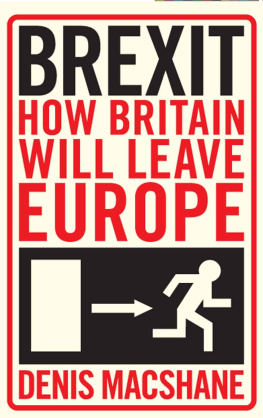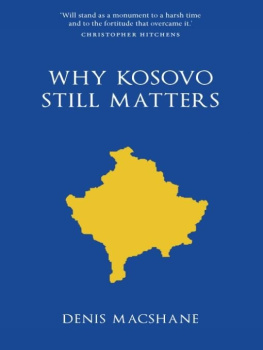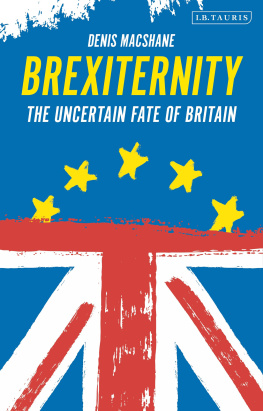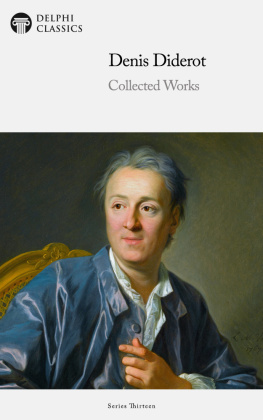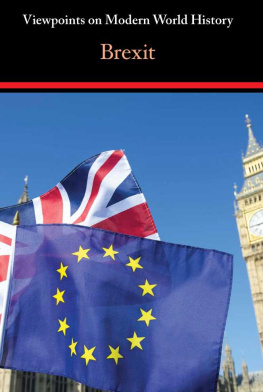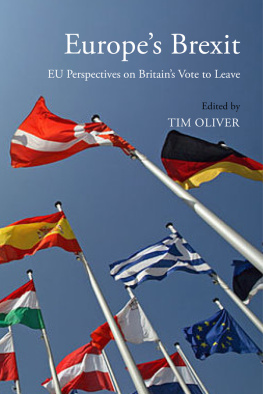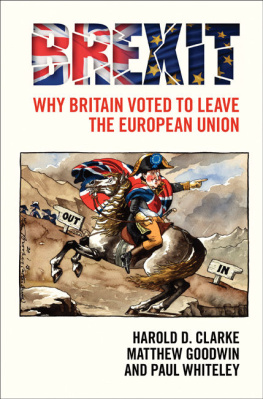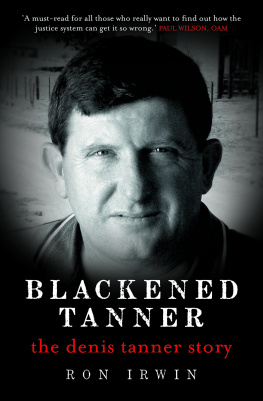Published in 2016 by
I.B.Tauris & Co. Ltd
London New York
www.ibtauris.com
Copyright 2016 Denis MacShane
The right of Denis MacShane to be identified as the author of this work has been asserted by the author in accordance with the Copyright, Designs and Patents Act 1988.
All rights reserved. Except for brief quotations in a review, this book, or any part thereof, may not be reproduced, stored in or introduced into a retrieval system, or transmitted, in any form or by any means, electronic, mechanical, photocopying, recording or otherwise, without the prior written permission of the publisher.
References to websites were correct at the time of writing.
ISBN: 978 1 78453 728 9
eISBN: 978 1 78672 060 3
ePDF: 978 1 78673 060 2
A full CIP record for this book is available from the British Library
A full CIP record is available from the Library of Congress
Library of Congress Catalog Card Number: available
Typeset by Out of House Publishing
INTRODUCTION
The main purpose of this essay is both political and emotional. I believe we can have our country and our Europe. I will advance the case that there is no contradiction between being pro-British and pro-European. But if we choose to revert to the great British temptation of isolationism then we will both weaken Britain and undermine our friends, partners and allies across the Channel and the Irish Sea.
I will discuss some of the economic arguments in due course, but this is my sense about the identity of my country and the Britain I want my children, all now in their twenties, to live in. It is a letter to them and their generation to explain how lucky I think I have been to live in a Britain that, for most of my adult life, has cooperated and integrated with other European countries.
In 2007, the Independent announced on its front page 50 Reasons to Love the EU. I wrote these reasons and the then editor, Simon Kelner, who liked shock front pages, published my list.
There were more on the inside pages, under the Monty Python-style heading What Has Europe Ever Done for You? Here are the first four:
The end of war between European nations
Democracy flourishing (more or less) in 28 countries
Once-poor countries have had a long period of prosperity
The creation of the worlds largest internal trading market
and you can read all of them at the back of this booklet.
In recent years, arguments in favour of Europe have been thinner and thinner on the ground. Taken as a whole this century, the British Establishment the main newspapers, the Conservative Party, key opinion formers and many of the controllers of our economy has found much to complain about and condemn in the functioning of the European Union (EU). The Establishment has rarely paused for a moment to ask if its disappearance would be good for Britain or indeed to balance criticism by permitting arguments that defend Europe. I discuss the different currents of hostility to Europe in my book Brexit: How Britain Will Leave Europe, first published by I.B.Tauris in February 2015 and updated following Mr Camerons re-election as prime minister in May 2015 and the formal decision to organize the referendum on 23 June 2016.
Establishment hostility to Europe from the late 1990s onwards transcended politics. In recent months the Guardian newspaper, for example, has carried pieces by its star commentators like Sir Simon Jenkins, Paul Mason, Owen Jones and Giles Fraser attacking the EU, with some calling for Britain to leave.
Many of the left-liberal political and economic commentators rubbished the euro and seemed to believe that a Europe of competing, devaluing, protectionist currencies, including the pound sterling, was better than the single currency.
In recent years big and small business have complained about the European Commission. Regulations to stop employees from being killed or injured at work, or to ban the use of asbestos, or to prevent discrimination against pregnant women or workers with disabilities, were presented as an onerous burden.
The Confederation of British Industry (CBI) in 2013 called for a permanent opt-out from the Working Time Directive even though Britain has an opt-out allowing employees to work more than 48 hours a week. Firms in Germany or the Netherlands were profitable and had better productivity records than their British counterparts, but did not feel the need to always blame the EU for any failings of their management culture.
In 2009, the British Chambers of Commerce (BCC) claimed that EU regulations costs its members 11 billion a year, without pointing out that rules are needed not only to protect British consumers but also to open up the entire EU market. In 2007, the Institute of Directors produced a long critical report of the EU Lisbon Treaty complaining that some policies would be decided by majority voting which is at the core of the single market, which would never have come into being and will never be completed if national parliaments maintain protectionist rights to veto any Europe-wide policy to promote competition.
Before 2010 there were many in the business world who were unhappy at the constant chip, chip, chip at the EU from business organizations but didnt want to enter into conflict with their friends in the Conservative Party, especially before 2010, when Conservatives daily attacked the two Labour prime ministers for any agreements reached with their fellow heads of EU governments.
Since David Camerons announcement of his Brexit plebiscite in January 2013, I have from time to time suggested to business leaders that perhaps they should make some statement against Brexit. But the reply was usually that they preferred not to enter political or controversial arguments. The CBI is now officially opposing Brexit but will not sign up to the campaign. The Director-General of BCC resigned after being suspended when he came out as a devout Brexit supporter. BCC now says it will be neutral on the issue.
I have written many articles tackling the errors and the at times untruthful propaganda of the anti-EU Establishment. But they remain unpublished in my MacBook files as newspapers and political weeklies like the New Statesman had editors who refused to make the case for the EU. I did not worry for myself as there are many with better writing or advocacy skills, but so strong was the anti-EU Establishment in Britain that those supporting the EU were denied a platform to make their case in the face of the daily outpouring of anti-EU arguments and comments in recent years.
In the 1930s, Lord Northcliffe, owner of The Times, and his editor, Geoffrey Dawson, supported British isolationists who believed Britain should stay aloof from continental engagement. They made sure nothing was allowed into The Times and other papers like the Daily Mail or Daily Express which challenged the isolationist Establishment view on Europe at the time. So too in our time we have owners and senior editors of our press that are part of the anti-EU Establishment and actively promote the isolation of our country from present-day Europe as organized in the EU.
I hope that by now members or supporters of the BNP, UKIP and Europhobe Tories and


